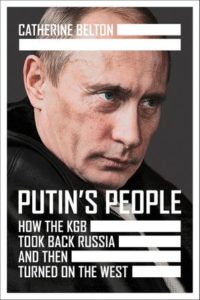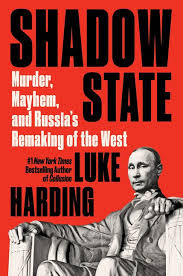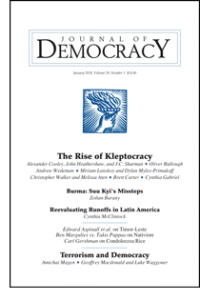 The crisis atmosphere of the coronavirus response raises the risks of corruption as aid flows to graft-prone healthcare systems. But it’s not too late to put safeguards in place, writes Abigail Bellows, a nonresident fellow at the Carnegie Endowment for International Peace:
The crisis atmosphere of the coronavirus response raises the risks of corruption as aid flows to graft-prone healthcare systems. But it’s not too late to put safeguards in place, writes Abigail Bellows, a nonresident fellow at the Carnegie Endowment for International Peace:
The good news is that the U.S. government can take action to avoid this dark prognosis. The biggest near-term step would be inclusion of the Countering Russian and Other Overseas Kleptocracy (CROOK) Act (H.R. 3843/S. 3026) in Congress’s planned fourth coronavirus-related spending package. The bill would form an Anti-Corruption Action Fund to surge support to countries eager to take rapid action against corruption, as the current crisis demands.
Catherine Belton’s new book, Putin’s People: How the KGB Took Back Russia and Then Took on the West, chronicles the ways in which slush funds can be deployed to achieve political ends, adds Luke Harding, author of the forthcoming Shadow State: Murder, Mayhem and Russia’s Remaking of the West. They might be domestic: rigging an election, say, or influencing events abroad. Similar to his Dresden mission, Putin has expended considerable resources in subverting western democracies. He has bought off leading politicians and funded divisive far-right parties across Europe. In Belton’s clear-eyed view, Russia uses capitalism as a weapon to “get even” with the hated west, he writes for the Guardian.
 According to the World Economic Forum (WEF), the amount of money lost to corruption globally is $2 trillion a year, says a new report from the CSIS. Anti-corruption efforts have the potential to support both U.S. economic and national security interests, according to authors Daniel F. Runde, Senior Vice President; William A. Schreyer Chair and Director, Project on Prosperity and Development, and Christopher Metzger, Research Associate, Project on Prosperity and Development.
According to the World Economic Forum (WEF), the amount of money lost to corruption globally is $2 trillion a year, says a new report from the CSIS. Anti-corruption efforts have the potential to support both U.S. economic and national security interests, according to authors Daniel F. Runde, Senior Vice President; William A. Schreyer Chair and Director, Project on Prosperity and Development, and Christopher Metzger, Research Associate, Project on Prosperity and Development.
But repealing the Cardin-Lugar provision of the Dodd-Frank Act, withdrawing from the Extractive Industries Transparency Initiative (EITI), cutting support for the UN Democracy Fund, and failing to block efforts to end the International Commission against Impunity in Guatemala (CICIG) has weakened the United States’ reputation as a leader on anti-corruption, they contend. In a time of great power competition, the United States must set itself apart from its competitors by continuing to promote its democratic values, including good governance and the rule of law. RTWT
 How will the COVID-19 pandemic affect transnational kleptocracy? The International Forum for Democratic Studies at the National Endowment for Democracy (NED) asked a number of specialists.
How will the COVID-19 pandemic affect transnational kleptocracy? The International Forum for Democratic Studies at the National Endowment for Democracy (NED) asked a number of specialists.
Illicit finance may well be one of the industries which thrives during the coronavirus pandemic of 2020 and more diligent efforts will need to be retroactively applied to investigate questionable activities and monetary transfers, said Mary Beth Goodman, New America. (@mbgoodman)
Elites are all the more likely to prize their offshore bank accounts, second citizenships and residencies, and their global reputations, said John Heathershaw, University of Exeter. (@HeathershawJ)
 In states captured by kleptocrats, profiting from crises has tragically become the norm, not the exception. Corrupt regimes around the world have opportunistically capitalized on crises to expand their power and enrich themselves simultaneously, said J.R. Mailey (@MaileyJR), director of investigations at The Sentry.
In states captured by kleptocrats, profiting from crises has tragically become the norm, not the exception. Corrupt regimes around the world have opportunistically capitalized on crises to expand their power and enrich themselves simultaneously, said J.R. Mailey (@MaileyJR), director of investigations at The Sentry.
There are some reasons for hope, however, argues Jodi Vittori (@j_vittori), a non-resident fellow with the Carnegie Endowment for International Peace. Populations under quarantine are experimenting with new forms of protest. Some of this creativity may bring new tactics to effectively fight kleptocractic regimes in ways we have never imagined.







